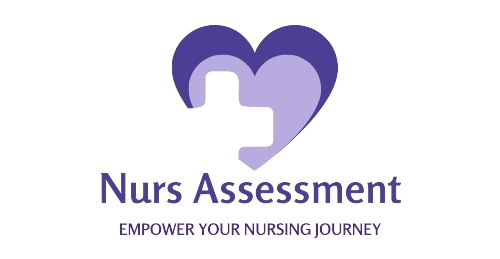Nursing practice has one goal i-e providing best nursing care to their patients. In this case, the nursing care plans provide them a track to move forward step by step to enhance patient recovery. Furthermore, the individual care plans provide better quality health care because efforts are made within them to provide patient centered care. Besides this, such individualized care plans address the needs and goals that are particular to every unique individual patient and bring better outcomes for the patients.
The sample of a care plan for patient has shed light upon the key ingredients of care planning from patient assessment until goal setting, collaboration with interdisciplinary team, monitoring, and evaluation. Moreover, it also involves overcoming barriers and patient teaching through future considerations.
A health professional needs to learn the effectiveness of care plans and the strategies for the development and implementation of those care plans. In this way, patients are managed and provide adequate care to them to get positive outcomes.
Why Care Plans are Important
We can’t deny that care plans ensure quality health care. The care plan would, in turn, outline exactly what needs to be done and what interventions have to be implemented in order to meet the unique needs of a patient. So, care plans can easily be termed the GPS of health care providers to deliver optimum and individualized treatment.
Furthermore, a care plan is like a highly organized toolbox that holds all the tools needed to take care of the patient. In short, it includes information on a patient’s past medical diseases, their current state, the goals of treatment, precautions, and follow-up measures or steps. That is, it is almost like a customized roadmap that definitely states the road to health and well-being for the patient.
Assessment of the Patient & Setting Goals
No doubt, an effective care plan starts from assessment and understanding the status of the patient in regard to his physical, emotional, and social situation to appreciate his needs, challenges, and preferences. The sample of a care plan for patient presents that this kind of information is quite important in setting a base for the formulation of a proper care plan.

Goal setting is akin to drawing a target on a map: it orients one toward the destination and motivates the journey. Furthermore, the nurses use the smart goal model in their nursing practice that is specific, measurable, attainable, relevant, and time-bound. This model would secure clarity, attainability, and coincidence of goals with the aspirations of a patient and therefore make them achievable.
Development of a Care Plan & its Implementation
No two snowflakes are alike; neither are two patients. That is why care plans must be developed appropriately to be able to address the needs, preferences, and situations of every patient. Nursing care plan must be as unique as the patient for whom it is meant.
Evidence-based interventions would simply be like the lighthouse in this vast ocean of choices facing healthcare providers to show the way toward the most appropriate course of treatment. In addition to this, it would come with the assurance that the proposed care plan is sustained by research evidence. Moreover, it includes a wide range of literature sources and expert opinions. Therefore it is a well-structured and well-developed move toward better patient outcomes.
Interdisciplinary Team Collaboration
Teamwork can do miracles in health care. Furthermore, the interdisciplinary collaboration serves as a heterogeneous group of health professionals with differing skills and expertise toward ensuring holistic and comprehensive care for the patient. Therefore, everyone such as doctors, nurses, therapists, or social workers work in the team and hold a significant position in actualizing the care plan.
According to the care plan nursing sample for patients, the communication is the glue that makes the healthcare team stick together. Therefore, a correct, open, and timely communication between the members of the team facilitates cooperation, eliminates misunderstandings, and ensures everybody’s efforts are directed toward the same goals. No doubt, an effective communication is the key to deliver high quality care
Monitoring & Evaluation of Care Plan
There is no doubt that tracking and monitoring nursing care plans for patients is very important for nurses. It will help them to find out how the patient is responding towards nursing interventions and what kind of outcomes are coming.
Life is a journey that throws up challenges, and care plans are no exception. That’s why nurses are also feeling overwhelmed and stuck. At this time, they need to find out the hurdles and explore resources and use their problem-solving skills. On the other hand, update or revise care plans according to progress and obstacles.
Patient Education and Empowerment
There is no doubt that patients need to be educated about their conditions and care plans to understand better about their health. Due to this reason, the nurses should focus on patient education and empowerment. In addition to this, they can also educate their families to provide better care to their patients even at home.
Future Trends in Care Planning
Nurses know it very well that care planning has its own trends. Therefore, they must stay aware of advances and changes in thinking about care planning so they can deliver up-to-date patient care without making any mistakes. That is what sample of a care plan for patient represent and show the right path for learning and upgrading knowledge.

In other words, effective care planning is an integral part of high quality health care in relation to the special needs of distinct patients. Patient support in overall well-being after the care decisions are made ensures that there is satisfaction in the care provided.
Furthermore, the two elements such as promoting creativity in crafting care plans and maintaining person-centered care plays a vital role in the future of healthcare. Besides this, it will be great for positive patient outcomes.
FAQs
- What are the 5 main components of a care plan?
The five main components of nursing care plans are as follows:
- Assessment
- Diagnosis
- Planning
- Implementation
- Evaluation
2) What is a formal nursing care plan?
A formal care plan in nursing practice is a computerized and well-written guide that organizes whole care information regarding patients.
3) What are the two types of nursing care plans?
The two major types of nursing care plans are mentioned below:
- Informal nursing care plans
- Formal nursing care plans


